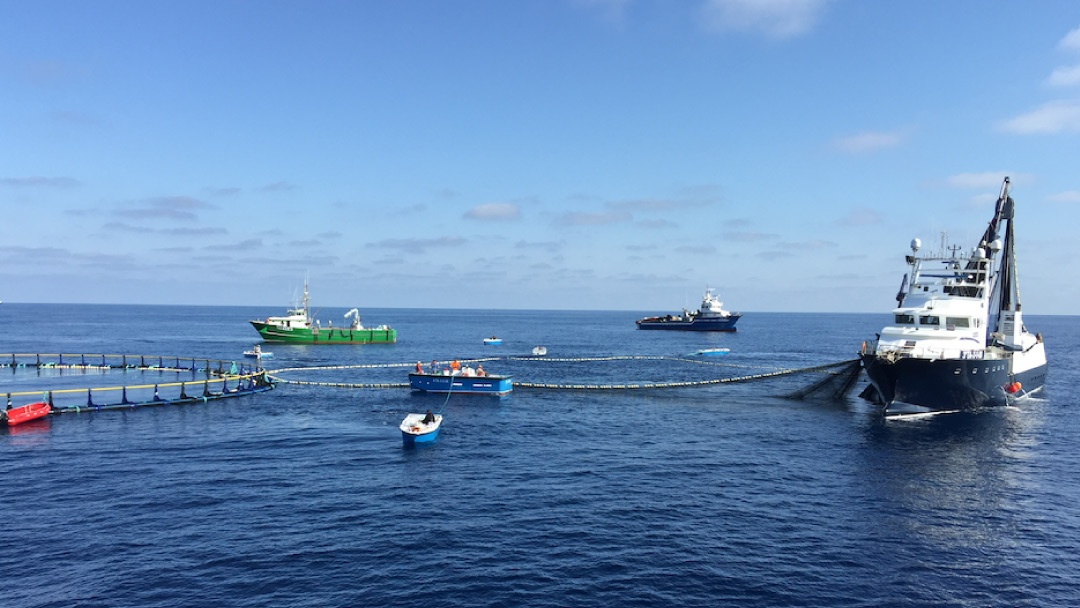"Land, housing and food are interrelated, both in the problem and in the alternatives"
- The pro-Earth movements in the world are innumerable and varied in the struggle, and in the Northern Basque Country they have taken great force, among other things, the joint occupations of peasants and citizens to curb speculative trade in farmland. These ecosocial struggles have been commented by Juana Detchart and Hartu López Adam in Egonarria, from the Ostia collective, under the direction of Eli Pagola.

The struggles for Earth are igniting there and here. That is why Joana Detchart is optimistic, "which has been consolidated throughout our society and I believe that today is a great concern for everyone, for all generations and in all areas. Although it is not always easy to organize together, the struggle for Earth is something we have in mind." On the contrary, Hartu Lopez Adam sees the situation as negative: "What do we see every day? Government and business are still in this crazy wheel for profit and privilege, although there are signs that the world is in decline. Consumption patterns do not change, most of society continues to provide the necessary money to capitalism on a daily basis. And few people move around the Earth. The initiatives are not enough to stop what comes to us."
All interviews at:
Debates of the European Parliament The entire force of government against the environmental movement
López Adam explained that in France "a more aggressive ecology" has risen with the Uplifting of the Earth. "Its aim is in practice to stop harmful infrastructures. This requires going to the places, implementing a practice they call "disarmament" (sabotaging at the end), taking it public and giving the message about it."
But the government’s repression of them has been growing as the movements have gained strength. In the words of López Adam, "the government of Macron has followed in recent years the pattern that came beforehand: the systematization of repression against social movements. We have already seen Jaka with his sequence, with the young people living in the suburbs, with the reform of the retas, with the environmentalism ... Anti-terrorism arose against the Islamist threat, but this does not require them too much work, so they have focused on the environmental movement. They have put their means: espionage, use of weapons, judicialization, rapid police violence in demonstrations...".
López Adam added that the problem is that "this kind of shock becomes a state matter: it is not about seeing what damage or what benefit that infrastructure brings to society and to nature, but about raising it as a "statue against ecologists" and seeing who is going to win. Therefore, the French Government does not want to let ecologists win on many issues for one principle: to protect their judgment, their model and their friends. Because you know it well, if you lose an issue, that can favor or strengthen other struggles. Therefore, conflict is polarized and there is repression, intervention by politicians... That is where we are today in the French state with some issues. Several infrastructure projects reflect a vision or struggle between two worlds."
The French Government tried to dismantle the movement in the courts and Detchart sees another reason for optimism at the end of this case: "There has been a big setback for the French government that this dissolution was neither legal nor could be done. At Anarte, the environmental movement has been strengthened again."
Union of peasants and street people in land, food and housing
Detchart points out that for the Ostia network (Thematic Network of Occupation Gana Arte) the union of peasants and citizens in the same struggle has been a great achievement: "Today in Iparralde the biggest struggles are the protection of housing and farmland, that is, how we feed ourselves and how a mere speculation is made about farmland: they are stolen to make money, they are not for the local people. This is clearly understood. And in that struggle, people are concentrated, both the peasants and a large number of people in the city and the people, both to occupy those cultivated lands and to symbolically protect them, but also to cultivate them in the long term." López Adam has made the following intuition: "Land, housing and food are interrelated, both in the problem and in the alternatives".
For Detchart, the multiple forms of struggle found within environmentalism make possible the union of more different people: "If you want to be more aggressive, you have the opportunity to do it or to attract your allies, or if you prefer to raise awareness, do concrete things in pedagogy and communication. Sabotages, occupations... there are many things that are poorly seen but that at the same time are seen with great legitimacy nowadays".
López Adam highlights projects that have paralyzed Iparralde: "The Surf Park project of San Juan de Luz, the TAV itself (they always say that at ten years will start the works), the 5G antenna in Donamartiri, the amusement park on Mount Larrun... Going further, the 2x2 highway between Garazi and Pamplona, the water mines in the area of Itsasu... all these projects have been stopped thanks to the mobilization. This means that we have the capacity to obstruct some things, so we have to go on that path clearly."
Detchart concludes with the optimism with which Egonarria has started and with the conviction that: "I always want to be optimistic, not only because I'm optimistic, but because we can't give in."
Mark the date of 12 March to close the session: "It will be trial in Baiona against four members of Ostia for the Marienea construction project of Cambo. It must be an important quote."










